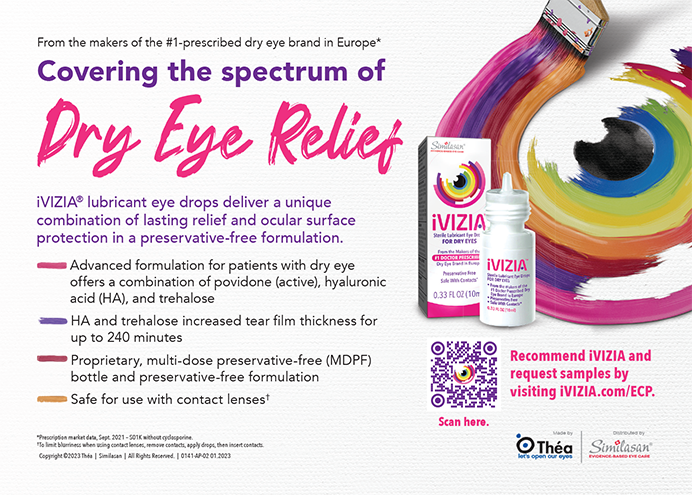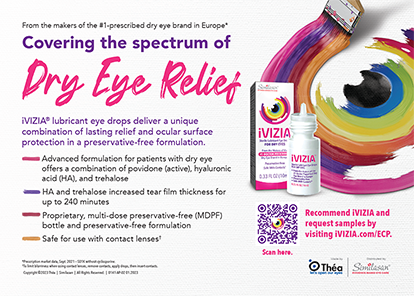In this month's column, I'd like to introduce the topic of physician-patient (and staff-patient) communication and its critical role in any successful cataract and refractive surgery practice. Think of it this way: Communication is to patients' satisfaction what location is to real estate. The words of you and your staff, accompanied by conscious or unconscious verbal tone and nonverbal cues, have a profound impact on your relationship with both potential and established patients. Communication directly affects not just whether your patients actually incorporate the information you want to impart, but it influences what they think of you and how they remember that information. Even more importantly, it can tremendously affect whether patients emotionally and cognitively perceive you and your practice in a positive or negative way.
VERBAL AND NONVERBAL CUES
Publilius Syrus, a Roman writer in the first century BC, said, "Speech is the mirror of the soul; as a man speaks, so he is." The first response to any message is an emotional reaction, and many people react unconsciously. In face-to-face communication, the total impact of any message is predominantly derived from vocal and nonverbal cues, not the words themselves. Nonverbal cues—such as facial expression, eye contact, and body language—are said to register in 0.025 seconds. Patients can make immediate decisions about whether to like or dislike you and believe or disbelieve you based on how you initially greet them. When you communicate with a patient, your vocal tone, inflection, and nonverbal cues also communicate your respect for them as well as your credibility, expertise, and enthusiasm.
You can take even the nicest of words and change their meaning through your tone of voice, inflection, and facial expression. Let's look at a common example. The phrase "It's such a pleasure to see you again, Mrs. Jones," doesn't send a pleasant message to a patient if you say it in a monotonic voice without making eye contact or smiling. If you then sigh, look at the patient with a condescending expression, and say, "So I hear you have some complaints," you can practically guarantee that Mrs. Jones (who, by the way, has an extremely large group of talkative relatives and friends in your area who enjoy regular get-togethers) will not be praising her experience with you or creating any referrals.
I know what some of you were thinking as you read the preceding paragraph: "Well, Mrs. Jones had a great result, so she shouldn't be complaining. I wouldn't complain if I had those results. I'd remember being counseled about those expected side effects and tough it out." If you find yourself thinking like that, it's definitely time for a paradigm shift. Repeat after me: Patients' perception of their overall experience and outcome is the one that counts, not the surgeon's. The patient's perception is the patient's reality.
IN SUMMARY
To build and maintain a successful practice, you need more than just great surgical skills and technology. You need consistent, outstanding communication skills. You and your staff must therefore regularly participate in ongoing training sessions, observe yourselves communicating with patients and seek feedback, and practice positive communication in a variety of settings. Not only is this approach an effective risk-management tool, it creates a positive referral source to expand your practice. In today's economy, patients value positive experiences that create pleasant emotional connections. One of the primary ways to achieve this rapport is through improving your verbal and nonverbal communication skills.
Jennifer S. Morse, MD, is in private practice as a consultant for medical and surgical psychiatry in San Diego. Dr. Morse may be reached at (619) 405-5919; jmorsemd@aol.com.


